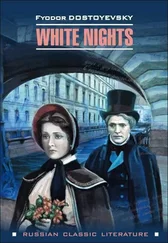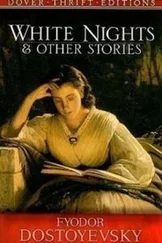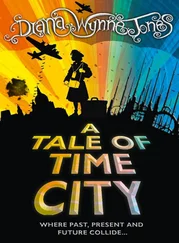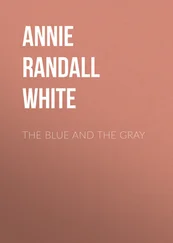“You have a long nose,” Otto said.
“It belongs to my mother,” I said.
“It’s good to know what belongs where,” he said.
It was late. Or it was getting late. But there was something in the way Otto looked at me, that pride brimming up in his eyes, I was afraid to leave it alone. “Come inside,” he said. “I’ll put us on a pot of coffee and some cards.”
“I suppose I could deal just one hand,” I said.
The table in the kitchen was littered with piles of hospital bills, dirty coffee cups, and mountains of discarded creamers. We sat across from each other. The table was small. Our knees touched from time to time.
“He doesn’t mean any harm,” Otto said nodding toward the RV where Wilson had retired as he poured a glass of Whiskey. “He’s just looking for someone his own age. There isn’t anyone left.”
“Who’s left for you?” I said.
“Well,” he said. “Callie keeps me busy from time to time.”
“How long have you known her?” I said.
“Long enough,” he said. “To hate her a little. I’ve raised her like one of my own.”
“I’ve seen her on your lawn,” I said.
“Always up and out the door before the next day breaks over top of her,” he said. “Never could shake the life out.”
He reached out across the table and handed me the cards. The box was soft and worn at the edges.
“Deal me a good hand, Jeanie,” he said, taking my hands in his as I reached for the deck. A wind came in through the slat where the window next to the table was open. The old hobbyhorse clanged against the side of the house in the breeze. I could make out the outline of its hooves where they hung in the dim light of the porch, the thin strips of gun-metal silver. I wondered how old Callie had been when she’d spray-painted her name on its rump and where she’d ridden it on his lawn.
“I’ll deal,” I said. “You cut the deck.”
There’s something about hands that cuts to the quick of a man. Otto’s were lithe and narrow, with large boxish fingernails which he kept clipped close to the flesh. Watching them move over the pile of cards reminded me of the way Grandfather had once sharpened knives in a steady arc against the carving stone in his kitchen. “A fast even clip,” Grandfather had said. “That’s where you find your edge.” Otto’s hands flipped and spit with the same confidence. Here was a man without patience for clumsiness or idle. He’d had so much backward speed fall into his life, it was all he could do to get himself and his son washed each morning. Every now and again he groomed his own mustache or changed the straight pin on his lapel. Occasionally, when he needed to get away from the world, he cracked his whip at the air for a while.
Otto flipped his last card. I still had two on deck.
“I win,” Otto said.
“You always win,” I said.
The speed fell out of us. At some hour Otto’s Scotch turned into Whiskey. My cup he filled with sweet cognac, which he cut with a teaspoon of sugar. The edges of the cards adopted a haze. Each time Otto shuffled they fluttered momentarily.
His knees gripped mine.
I got up to go the bathroom. How long I sat on that yellow toilet seat counting the cracks in the rim, I couldn’t say. When I came out, the room was spinning and my body had taken on a leftward lilt. I stood for a moment in the hallway and steadied myself against the expanse of wall. Otto was in the living room with his tumbler of Scotch regarding the pale screen of the television, its lead-bellied glow illuminating the thick grain of the carpet, which he hadn’t bothered to vacuum since His Helene had stopped entertaining and now lent considerable dirt to the bottom of the foot. Skeeter Davis’s “The End of the World” played on the hi-fi. Otto wore his field boots inside the house as of late. He said he feared gnats. He feared lice. He feared paper fleas on account of the newspapers he kept stored in the wood crate next to the fireplace. Some nights, he said, he awoke to the feeling that a strange mold was growing up his throat on account of the floorboards. The earth around the foundation had crumbled in recent years. In the winter when the snow came in under the house, the floors were damp for weeks. He’d taken to packing old trash bags with dried leaves to try and patch up the gullys under the house where he could. The bags provided little protection. When the wind got to raging he swore he could hear it cursing the floor beneath him.
Other nights, he’d told me, he woke to the feeling that the house had been raised off the earth. I imagined him in his robe throwing himself toward the window in order to look out and regain some sense of his habitation. There was the earth. There was the barn. He searched for the line of trees in the distance to convince himself the house itself hadn’t been swept from the earth like some dwelling in the Malaysian peninsula which stood suspended next to the shore on thin legs of reed in case the river swelled after the storm. A kelong they called it. He’d seen the word in a recurring dream.
The dream, as he’d told it, began with a knock at the door. His first thought was of his wife. He was living in a motel next to the sea in the old fishing town in Galicia where he’d gone to dry out his head after the war. His Helene had caught him at the door with a towel around his waist, some dark-eyed woman who he’d met behind the glass at the currency exchange laying in the blue glare of the rented bed.
His second thought was that the police were on to him. When he opened the door, a man who looked like Wilson handed him a summons. “D. B. Cooper?” Wilson said. “You signed a bad check to the bank.” In 1971 D. B. Cooper had boarded a Boeing 727 on flight between Oregon and Washington, ordered a drink and announced to the stewardess that he had a bomb in his bag. After receiving a sack-full of ransom at a refueling in Reno, D. B. Cooper ordered the plane disembark and fly south to Mexico. He’d plummeted mid-flight with the money.
Alone under the weight of his anxieties, the dream, Otto’d said, took on the presence of his reality. Cooper was a man of sophistication and precision. After announcing to the stewardess that he had a bomb, he’d ordered a bourbon and water, paid his tab, and told the stewardess to keep the change. “Looks like Tacoma down there,” he’d said reassuringly. Of D. B. Cooper’s effects two items stood out in Otto’s mind, his black attaché case and his mother-of-pearl tiepin. Otto himself owned a mother of pearl pin, which his wife had given him when their first horse had won the Grand Prix.
As I walked into the living room, the newscaster on the television was talking about a euthanasia machine. The image of a woman who looked not unlike Mother flashed across the scene. “And this stops the heart as soon as it reaches it,” a thin elderly doctor named Kevorkian said leaning over a machine which resembled His Helene’s series of drip tubes hanging next to the pullout in the corner where she now lay. “Her decision had been made some time ago,” the husband of the woman on the television said. The image of the crummy old van in an RV park where Kevorkian had attached the woman to her death looked almost identical to the RV in back of Otto’s house where Wilson now slept. I looked at the woman’s face on the screen and looked over at His Helene on the pullout. Helene’s thin, colorless head was propped up on a pillow, a few wisps of hair brushed over her temple. It was hard to tell if she was watching.
Otto slumped over on the couch in front of the window. The shades behind him were cracked open just enough that I could see the outline of the Bottom Feeder in the background, Father and Birdie asleep in it, wallowing in the shadows across the street. Slowly I approached the old man. “Shoeless,” I reassured Otto, taking his worn-out body into my arms on the sofa as he fumbled to get my dress over my head. “It’s like boarding a train, I promise.”
Читать дальше
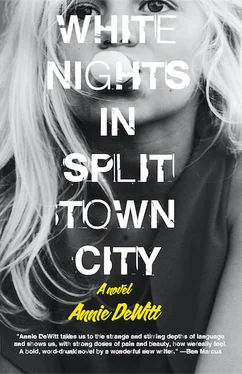
![Элизабет Ленхард - Свидание со смертью[Date With Death]](/books/79651/elizabet-lenhard-svidanie-so-smertyu-date-with-dea-thumb.webp)



